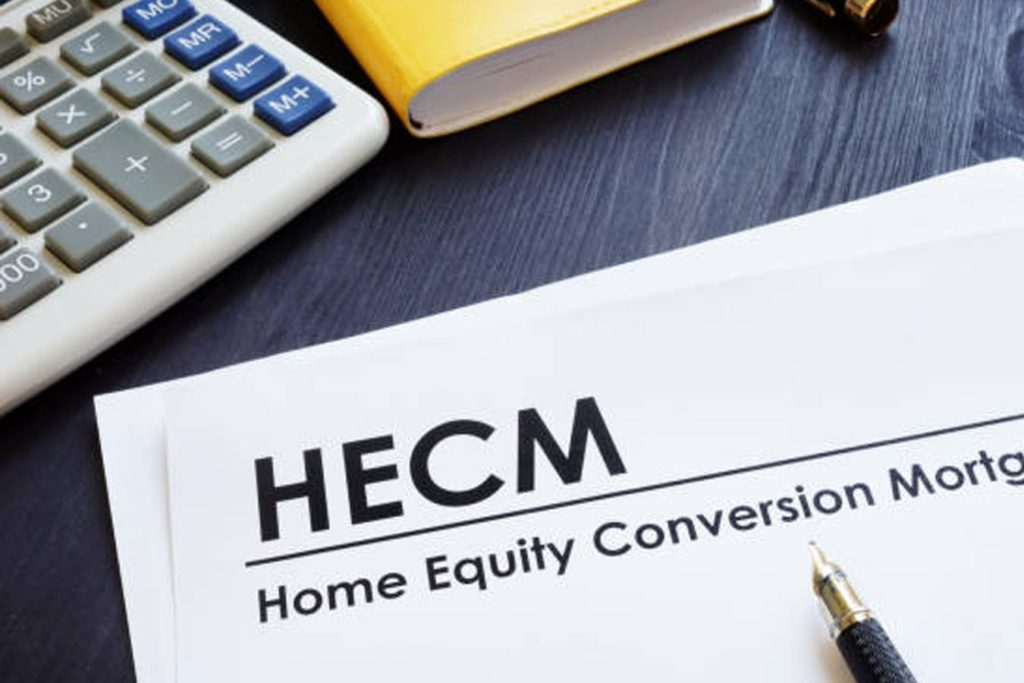What Is the Difference Between a HECM Mortgage and a Reverse Mortgage?

For the reverse mortgage industry, education remains an overriding focus due to persistent misconceptions many people have about the Home Equity Conversion Mortgage (HECM) program or its proprietary alternatives. However, with interest in the reverse mortgage segment growing due to the turbulent economic climate that began with the COVID-19 pandemic, more forward mortgage professionals may be more receptive to the possibility of entering the business.
This is no small feat, but choosing the right information to bring forward mortgage professionals up to speed can be a critical decision to make for industry education efforts. This is the kind of information that was recently shared by Dan Hultquist, national reverse mortgage training sales specialist at Fairway Independent Mortgage Corporation, in a recent webinar event held primarily for forwarding professionals organized by RMD and HousingWire.
The reverse mortgage information to introduce
When introducing the product concept to an audience that may be largely unfamiliar with it, getting down to the basics is likely a good place to begin. Hultquist opened his portion of the event by laying out the ground rules for what constitutes a reverse mortgage, offering a broad definition before drilling into certain specifics.
“There’s a lot of complex definitions out there, and you’ll hear a lot of lengthy explanations,” Hultquist began. “Really, a reverse mortgage — in its basic sense — is just any loan secured by a home where repayment is deferred to a later date, generally when the home sells.”
This might seem a broad definition for both the initiated and uninitiated alike, but Hultquist explains that the reason for going abroad with this initial definition is because many people outside the reverse mortgage business may not necessarily understand the particulars of the Home Equity Conversion Mortgage (HECM) as sponsored by the Federal Housing Administration (FHA), and the growing number of proprietary HECM reverse mortgages offered by lenders.
“There are actually multiple kinds of reverse mortgages,” Hultquist explains to the group. “Now generally when people talk about reverse mortgages, they’re talking about a product called the HECM: Home Equity Conversion Mortgage. That’s the only reverse mortgage insured by FHA. Not all reverse mortgages are HECMs, but all HECMs are reverse mortgages.”
This is when the distinction between the particulars of the HECM and the broader product concept can be explained, and where it can be illustrated that the term “reverse mortgage” can actually refer to a broad range of products that existing forward mortgage professionals simply may not have been aware of.
Approaching reverse mortgage misconceptions
Since there is inaccurate information about reverse mortgages in the public consciousness, exploring the ways to correct some of the most common misconceptions can be key to cultivating an accurate understanding of the reverse mortgage product category. This is one of the things Hultquist aimed to do at the beginning of his presentation, by tying a common reverse mortgage inaccuracy repeated by many to the proper definition of a reverse mortgage.
“This last phrase at the end of the definition [is key]: ‘while continuing to own and live in your home,’” Hultquist explains after describing the age requirement. “The reason I like to put that in the definition is that we clarify upfront: no, you’re not giving up title to your home. The bank doesn’t get the home in the transaction at origination, at closing [or] even when the borrower dies. That’s not how a reverse mortgage works. So we want to make sure we clarify that up front.
Surveys RMD has conducted in the past with reverse mortgage professionals often say that the key misconception when talking with borrowers is that “the bank gets the home.” Addressing this key misconception at the beginning of a conversation can be a difference-maker.
Another common misconception is that a reverse mortgage is primarily a product for needs-based borrowers. Such borrowers are of course able to be assisted with a reverse mortgage, but because there are different use cases than it may be beneficial to point some of them out so that certain professionals are not boxed into thinking about the product in a certain way, Hultquist explains.
“That’s actually a small piece of the pie right now,” Hultquist says of the needs-based borrower segment. “That’s actually a lesser portion of what we do. Do we help people with lifestyle enhancements? Yeah, absolutely. Someone needs a new car, they want to travel to see them (or get away from) the kids, or they want to update the kitchen, maybe they want a new bathroom to help them age in place in their own home. There are a lot of different lifestyle enhancements where you can use that growing line of credit for whatever you want.”
Address borrower obligations quickly of course, as industry professionals know all too well, a reverse mortgage does come with specific obligations a borrower must meet in order to keep their loan in good standing. Hultquist aimed to emphasize this in his presentation.
“No conversation about reverse mortgages is complete without telling the client what they actually have to do,” he says. “Now, it seems most people think they don’t have to do anything if there’s no monthly principal or interest mortgage payment. That’s true, but there are requirements of the borrower, and we need to make sure that we communicate that. Every HECM prospect does need to be informed of the requirement to occupy the home as their primary or principal residence.”
Additionally, the requirement for a borrower to continue paying their taxes, homeowners’ insurance and (if applicable) HOA fees should also be emphasized in borrower conversations, but it also does not hurt to emphasize these requirements with other mortgage professionals. Some forward mortgage professionals may think that because of certain misperceptions, the industry does not adequately communicate borrower obligations. Having them clearly explained upfront may help to dispel that particular misconception.
Look for more from RMD’s forward mortgage-facing educational event soon on the topics of loan origination and financial planning.
The Bottom Line
Reverse mortgages can provide a supplemental stream of income for couples and divorced individuals in retirement. Before taking out a reverse mortgage it’s important to understand the eligibility requirements as well as what your financial obligations might be if you decide to sell the home or move out. It’s also a good idea to compare the best reverse mortgage companies to find the right option to fit your needs.

Marvin Blackmore is a blogger for the Huffington Post. He enjoys writing about marketing, health and business. Marvin was born in New York City and grew up on Long Island with his parents and two siblings. As an only child, Marvin spent most of his time reading books by himself or playing video games with friends.




